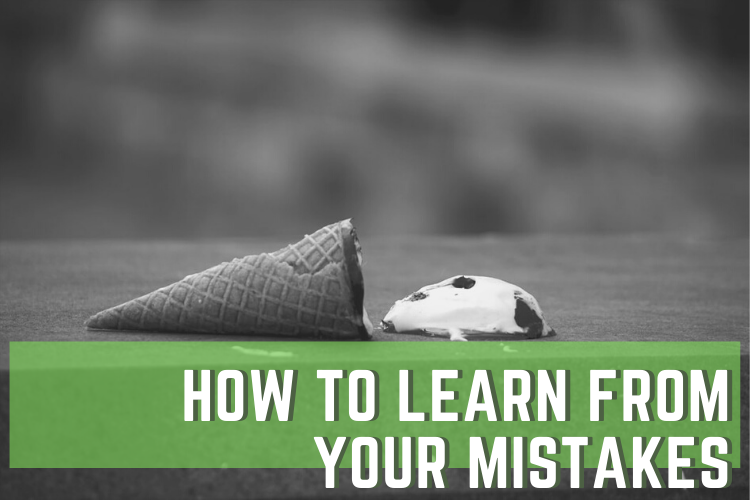Advice on Humility, Honesty and Growth in Marketing and in Life
“I think my only fault is my excessive humility.”
— someone’s dad
While we would like to never make a misstep in marketing, it is inevitable that if you work long enough in the field you will make mistakes. Mistakes are a fact of life in any profession and in our personal lives.
The good news is there is something to learn from any error. At the very least we can avoid that very same mistake. Even better, though, is producing more successful outcomes from the lessons learned.
But how?
Three important principles can help; be willing to learn, be willing to change, communicate with candor.
Be Willing to Learn
It seems obvious that to learn, you must first be willing to do so. However, it is also possible that we fall back on what has worked in the past and presume that the same actions will produce the same results.
The world of search engine marketing and pay-per-click advertising, especially, are known for rapid and continual change. If you don’t keep up-to-date with the latest best practices you expose yourself to risk.
The same holds true of more traditional marketing. When was the last time you conducted audience research? Have you updated the personas you are speaking to with your messaging?
If you based your campaign on “what has always worked” you won’t be as successful as you could have been if you had prioritized planning. Double-check those important assumptions you made are still correct. This does not have to be as time-consuming or expensive as you may imagine.
At a minimum, confirm there have not been important changes in the mediums you use like algorithm updates at Google or ad platform rules in paid campaigns. Don’t forget the possibility of new government restrictions in the area you are operating.
Most Importantly?
Listen to the audience that you want to attract and influence. You can do this from speaking to current customers, surveying social media sentiment, as well as more detailed surveys and other listening strategies.
Don’t hinder your thinking with statements like “I wouldn’t … We’ve never… I can’t imagine…” Your experiences and biases are not as important as your audience’s needs and perceptions.
An anecdote from my own career will illustrate this:
I was once part of a team that was trying to introduce a niche consumer product in the sports collectible vertical…
We did market research about the competing display products.
We looked at the price points consumers were paying and knew there was room for the high-end display we were creating.
We had the skills to make a high-quality item that was more visually appealing than anything currently available.
We asked our potential customers at various sports collectibles show for feedback on how it looked. It was very positive.
The price point we needed to support to be profitable was attainable.
However, we made missed one very important detail. It wasn’t until we started selling the item and potential customers started to ask if it provided UV protection. We missed that very important detail.
Be Willing to Change
The old joke says “I think my only fault is my excessive humility.”
Discovering you made a mistake can be a humbling experience. It is human nature to want to present the best impression to our co-workers and our business partners.
When a marketing mistake has been made, don’t be afraid to learn the root cause even if it may tarnish the persona of perfection you have cultivated. Mistakes are inevitable, particularly if you are stretching into a new market or in a new type of campaign.
In the sports collectible example I cited, I had to admit we missed the UV question. It was not economically feasible to add UV protection to the design. What to do?!
We didn’t scrap the product.
We made it less expensive to produce and changed who we marketed it to. Instead of the high-end collector with expensive memorabilia, we marketed it to a larger group of casual collectors with less expensive items that would not need UV protection.
Communicate with Candor
One of our core values at ChoiceLocal is “Candor with Goodwill.” Sometimes, we need to have discussions about topics like mistakes, but it is very important to communicate with people everyone with empathy and respect. If there is “bad news” about the reason a marketing mistake was made it needs to be communicated truthfully or the mistake might re-occur.
If you are a person who prides yourself on having “no filter” you may reconsider this. Filtering your communication does not mean you are not communicating fully; it means you are communicating effectively and thoughtfully. This applies to communicating with all stakeholders from your colleagues, the people you lead and the people you follow.
Consider the medium you use to communicate. Email is a convenient way to share information.
Beware!
It can be misread because our facial expressions and voice are very important in how we convey emotion.
If it is not possible to meet face-to-face, communicate via phone calls and video calls. These methods are far more effective in building a good path to communication.
Hopefully, you will only have limited opportunities to use these tips for recovering from marketing mistakes. But when you need to deal with a less than ideal situation these principles will help you do so effectively and can lead to improved relationships and results for everyone.
About the Author:
Matt Keough is an Account Director at ChoiceLocal. He has been involved in both digital and traditional marketing and enjoys helping his partners use the most effective methods to reach new customers. When not at his computer, he can be found outside in nature or the ball field with his family.


